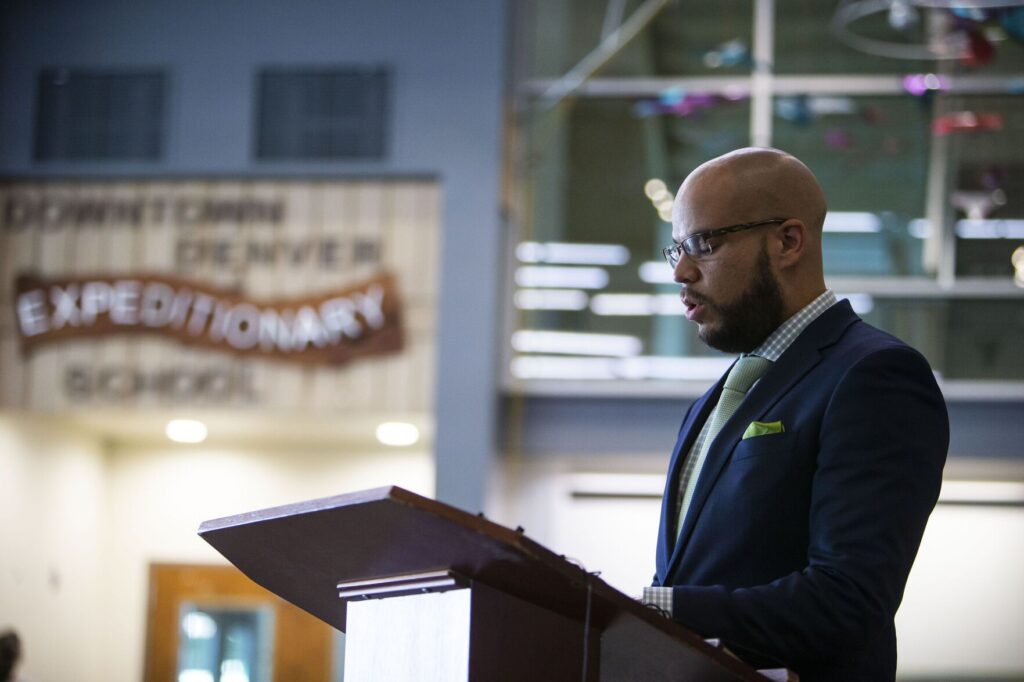Give all the public equal access to records | PODIUM


The law that governs how Colorado Open Records Act (CORA) requests work in Colorado makes special, explicit mention of the press, i.e., they are treated separately from the general population. Though journalists fill a unique role – gathering and disseminating information is their full-time job – they should not get special treatment.
There have been a lot of rumors lately about a bill in the works in the legislature to make CORA requests free to journalists. This is problematic in my view for a number of reasons. Right now, the law for CORA requests is written such that the government agency you request records from has the right to charge you for staff time gathering and preparing the information you seek, and for any physical, paper copies of the records you request. There are maximums on these charges (25 cents per-page for paper; no more than cost for other records materials, and $33.58 per-hour for time beyond the first hour, which is free), but I can tell you from personal experience that the numbers pile up high and quick. I once got a CORA bill from Attorney General Weiser’s office of $2,700 to try and review emails he’d sent out to local law enforcement during COVID. These prices also adjust for inflation, and are due for an adjustment in a year. If the prices move like those of everything else lately, I shudder to think what Weiser’s $2,700 would jump to.
Regarding the rumored bill, there are no draft bills or actual bills to go off of, so specifics are few and far between. But from what I hear, the bill would put an exception into law so “journalists” don’t have to pay CORA fees. What, exactly, is a journalist? They’re pretty easy to spot on TV or when they work for a newspaper, but am I one? Would I need a special degree or would I qualify by just being interested in learning, writing up what you learn, and sharing it as I do on my Facebook page or Substack or through op-eds like this one? I don’t do it for a living; teaching physics is too fun to give up. But I’d like to think that my efforts to gain access to public records has just as much value. What if you wanted to do the same as I do? What if you had an interest in something that you might share with your family, or your small town, or maybe a group of like-minded people on the internet? Would you qualify for the freebie?
CORA law already contains a way to try for a fee waiver – by demonstrating your request serves some “public purpose.” Reporters already have this avenue (as do amateurs like me). If they feel strongly that what they’re digging into has meaning, let them argue that what they’re doing meets this definition. Giving one group special treatment is a clear message that somehow one group’s purpose is more public or noble than another’s. I don’t want to sermonize about who has more value, or about the political ideology of the press as a whole, but I’d like to point out that we all have an interest in what our government is doing, and all journalists, whatever their political leanings, have a bias that narrows their field of vision just like blinders on a horse.
Let’s have more people looking, and let’s not make it so one group has special access that another doesn’t enjoy. There is no distinction between a mass-media organization wanting to get a list of contractor bids for a huge redevelopment project and my looking to see what information Gov. Polis’ CDPHE was collecting on people during COVID – or, say, a friend’s personal interest in learning more about the huge fracas that happened in his hometown of Florence. All of that has value. All of that should be treated equally.
As someone who has long advocated for improvements to CORA such as openness about email retention policies, and who has actively tried for years to drum up some support in the legislature to work on the problem, I am glad to hear there may be some movement in the direction of working on CORA law.
A giveaway to one group is not the way to go about it, however. A better fix would be to improve the fee schedule for everyone. With the technology we have now, which was not available when the law was written, it’s cheaper and easier than ever to share electronic records. Reasonable guides could be added to the law to help make sure that “public purpose” is not at the whim of a recalcitrant bureaucrat. There are solutions that don’t favor one group.
Cory Gaines is a physics instructor at Northeastern Junior College in Sterling. He runs the Colorado Accountability Project on Facebook and lives for what Richard P. Feynman called “the pleasure of finding things out.”













